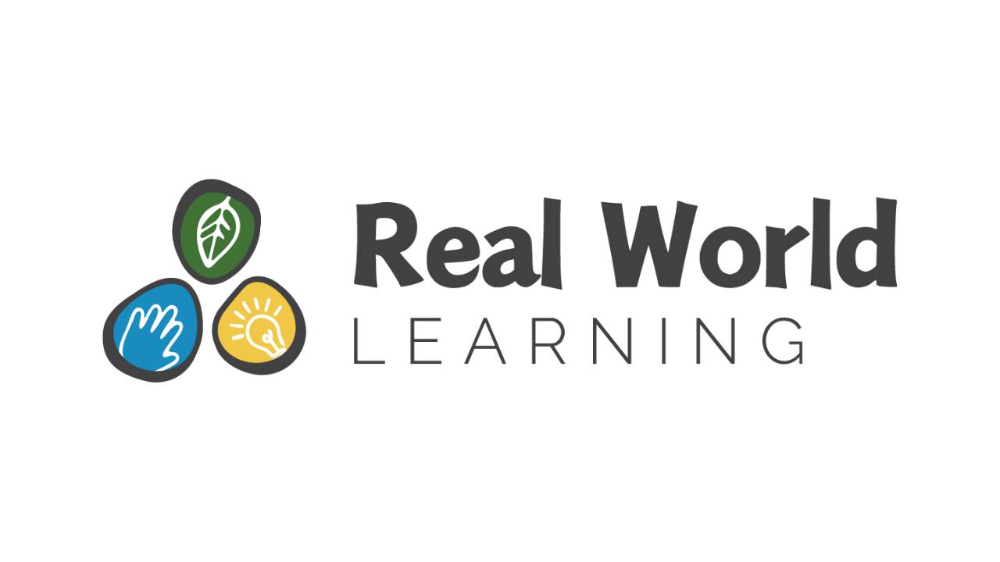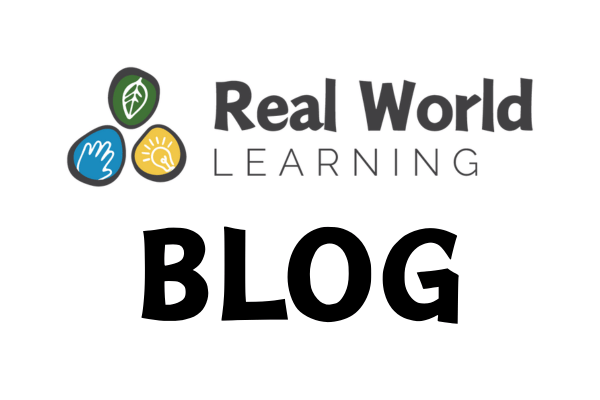Embedding Sustainability Principles & Practice

You’ve probably checked out the revised Early Years Learning Framework by now, even if this isn’t the Learning Framework you work under it appears to be driving change and setting the tone for the other Frameworks that are due for an update in the next little while. So it’s good to have an understanding of the direction its heading and the changes being made.
From a sustainability perspective there’s lots to be excited about! 🎉🎉🎉
Sustainability has been identified as a new Principle which means it should underpin your program and practice. That's a big shift. An important shift. And I’m all about it! 🌏
The thing that makes it easier is that they have also expanded the definition of sustainability. Sustainability is now defined as:
Seeking to meet the needs of the present generation without compromising the needs of future generations. This definition is derived from the United Nations Bruntland Commission Report from 1987. It’s by no means a new idea. I have also heard it s...
Local Action. Global Impact.

Sustainability can be overwhelming. It feels like such a big problem that there’s just no way anything we do could possibly make a difference…
It’s paralysing. It's easy to feel hopeless...
When we feel like this we will often retreat and stick our head back under the doona, waiting for something to come and save us - some magic bullet.

Many people think it’s only governments, or large businesses that can make a difference. But, often what we see is these massive organisations being dragged along by the smaller, more agile forces in our global systems.
Changing government policy is like turning a giant ocean liner. It’s not quick. It’s not agile. Just ask Captain Edward Smith - captain of the Titanic.
It’s usually governments who are playing catch up…
If we want change, if we want to create a better future for current and future generations then it’s up to us…

In fact, it is the decisions and actions we take everyday that make the difference. They add up. Not just al...
Getting Everyone on the Same Page - What is sustainability?

What does sustainability mean to you?
Do you think it means the same thing to the rest of your team, the children, families or others out in your community?
You might be surprised…😲
What I know to be true, is that sustainability can mean something different to everyone…
I’ve asked hundreds of people that question, and I’ve had hundreds of different responses.
But why..? I hear your inner 4 year old ask…🤔
Let’s think about that for a moment…
Sustainability is a concept. It’s big and complicated (well, to most of us anyway). It’s not clearly defined. It’s more about “the vibe”...
It’s not a list of criteria or specific actions we can check off a list.
How we define and understand sustainability is influenced by things like our experiences (what we’ve done), education (what we’ve learnt), values (what is important to us), culture (how we see and value the world around us and our place in it) and context (where we come from).
It’s emotive. For some reason the word sustainabi...
Engaging Others - The first step in embedding sustainability

What’s the ONE THING that keeps sustainability leaders stuck more so than anything else?
Lack of ENGAGEMENT…
I always ask people what their biggest sustainability challenge is and more often than not their reply is the same - getting others on board… Getting others interested... Having to do it all on my own...
Many of us spend months or years spinning our wheels, getting nowhere fast… often just chipping away, barely scratching the surface on our own.
It can be hard to understand why… Surely everyone knows we should be doing more… Just watch the news once in a while…

Maybe that’s the problem…
Sustainability can feel overwhelming, heavy and depressing. It has an image problem.
Many of us feel helpless and hopeless. What I do surely won’t make any difference…
Many of us feel like we don’t know enough about it, lacking confidence, worried we’ll look silly, either in front of our colleagues, or worse, the children!
Then there’s the usual chestnuts - I don’t have time, resour...
Celebration or Token Gesture?

Earth Day is coming up on 22 April, and it’s Nature Play week, closely followed by World Environment Day, National Tree Day, Biodiversity Month, National Recycling Week, NAIDOC Week, Water Week…. The list goes on…
Lots of people ask me what the point of celebrating all these days are, and is it helpful in terms of actually embedding sustainability. Isn’t every day Earth Day!?
My answer is, it depends…
If you do a few things on the day, and that’s it, probably a token gesture and not really moving the needle in terms of embedding sustainability.
BUT…
If you’re strategic, purposeful and intentional about how you celebrate and what you celebrate then that’s a whole other story.
So here’s some things to keep in mind…
Is it relevant or meaningful for your community or program? If you’re celebrating an event just to fill a hole in your program or you think you should, you might want to ask yourself if that’s a good use of your time, energy and resources. If it’s not meaningful to y...
Principles & Practice - Sustainability in the EYLF & MTOP 2.0

It feels like now is a great time to be focused on improving your sustainability practices and bringing sustainability to life for children.
It can feel overwhelming. It’s an important role you’re playing as an educator working with young children, and it seems that with the recent changes to the EYLF and MTOP Frameworks, others are beginning to see the potential impacts you can make too!
Let's unpack some of the changes to the frameworks as they relate to sustainability, and what they might mean for you and your service.
Let’s dive in…
The Frameworks have expanded their definition of sustainability. Previously the focus seemed to be on the environmental aspects of sustainability - encouraging children to show respect for the environment, connections to nature, use of natural materials, etc.
The revised Frameworks define sustainability as:
Sustainability: seeking to meet the needs of the present generation without compromising the needs of future generations (Brundtland Report ...
Think Global Act Local

How has the COVID-19 Pandemic changed the way you see sustainability?
I have been thinking a lot about this over the last couple of months. I am in Melbourne and have been in Stage 4 lockdown for what feels like forever. I don’t even know what day it is anymore! But, we are all doing what needs to be done to address the current crisis. That’s a key word right there - crisis…
This crisis has shown that the world can come together to meet a challenge and take swift and decisive action. We can change policies and invest at all levels of government, but it is the actions and decisions of individuals that make the difference - staying home, washing our hands, fronting up for testing... It is us who make the difference! Collective action towards a common goal adds up.
Remember that slogan from the 90's Think Global, Act Local. It's very relevant in this circumstance.

It has changed the way we think about lots of things. I have found I am much more mindful and considered in my ...
Why is now the best time to up your sustainability game?

Have you heard that ancient Chinese proverb...
"The best time to plant a tree was 20 years ago, the second best time is now..."?
Sustainability has been on the radar for a long time, but the situation, in light of recent world events - bushfires, pandemics, drought, floods, locusts, dust storms, social uprising, etc, etc... are starting to affect all of us, daily.
After a year of lock downs and travel restrictions - now is a good time to reflect on the sustainability of our programs and practices.
We were all forced to slow down, change our ways and reflect on the things that are important to us as humans (our health, our families, our communities, our way of life). We will eventually be getting things back to 'normal', some sooner than others, but what do we want the new 'normal' to be?
Sustainability has featured in many discussions as we consider the best ways to recover, both in terms of health and well-being, communities and economies following the pandemic, bush fires, floo...
What to do when it's just you...

Have you ever felt like you're walking this sustainability road alone...? I certainly have. There seems to be a distinct lack of interest from anyone else and you feel like your spinning your wheels and not getting very far.
I've spoken to lots of educators who feel this way. So, you're not really alone! There are lots of others out there, plodding along doing the best they can with what they've got.
So what do you do when it's just you? How can you still make a contribution and keep moving towards embedding sustainability?
Here's a few ideas of things you can do:
- Keep a positive mindset, others will join you on the journey, eventually!
- Lead a sustainability project in your service. Maybe its the collection of plastic lids for 'lids for kids' or introducing a compost bin or herb garden.
- Celebrate sustainability events like World Environment Day, National Tree Day, Recycling Week, or NAIDOC Week.
- Identify the sustainability themes in children's play or interests and exten ...
Small steps add up...

In my last post I talked about one of the biggest lessons I learned to engage others in my sustainability programs and initiatives - Evolution NOT Revolution! If you missed it, check it out here.
This idea is carried over in this post, starting small and building momentum over time allows for deeper engagement and supports the idea of embedding sustainability, rather than big or momentary token gestures.
Baby steps are easier for you to manage as you find your feet and lead your team and community on your journey towards sustainability. It gives you the opportunity to learn what works, what resonates and what sticks, without big investments of energy, time and money.
Think of it as an 'emerging curriculum'. You try something, adapt, see how you can build on what's working and extend the learning and impact. You can't do everything all at once. There is progression of learning and doing.
Embedding sustainability is not a linear process, it's more like an ever expanding spiral. ...



